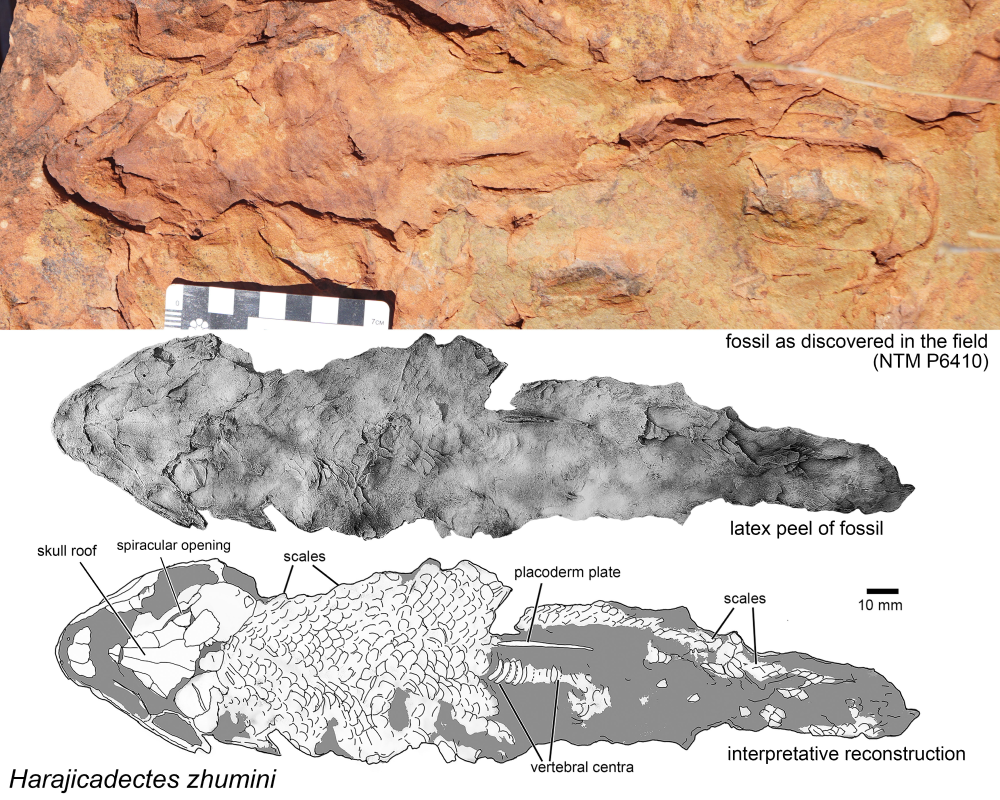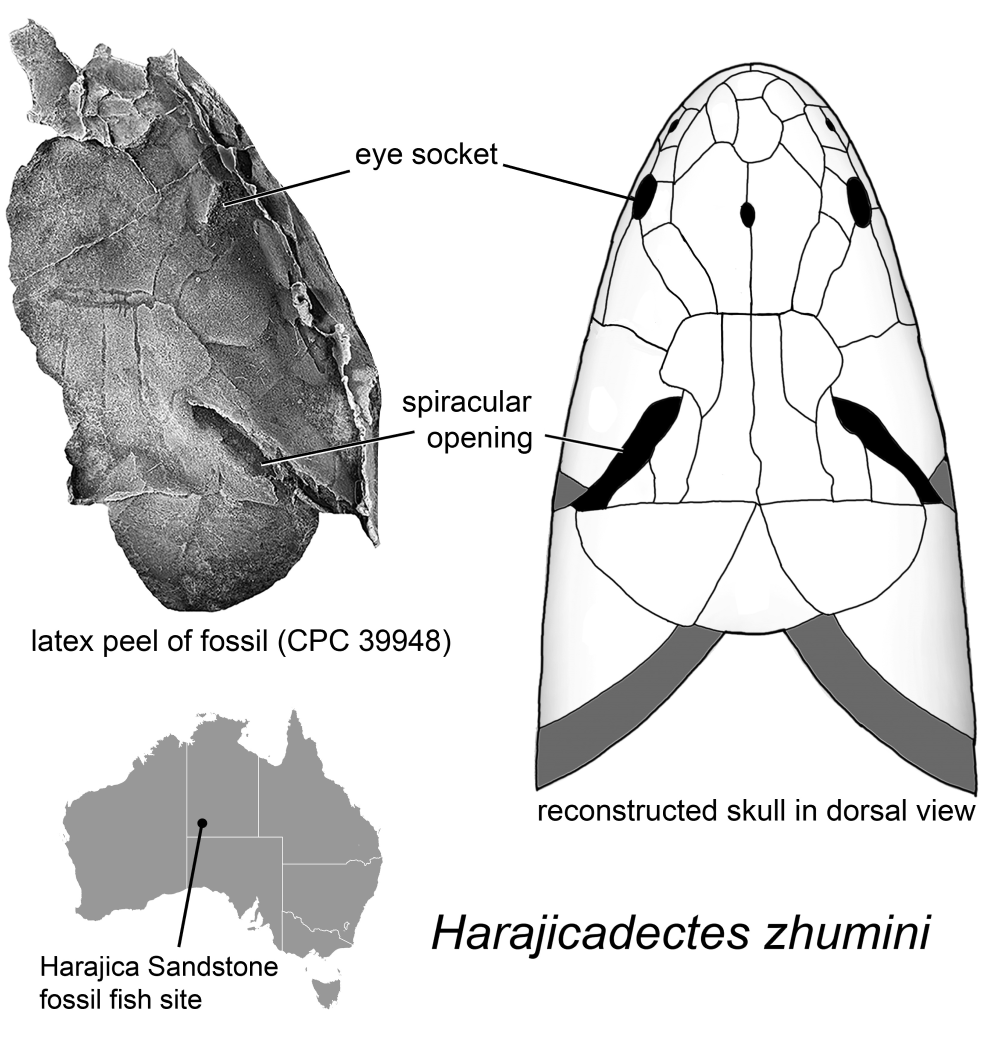One of the most remote fossil sites in all of Australia has just delivered a whopper of a new species: a predatory lobe-finned fish that was armed with large fangs and bony scales. It lived 380 million years ago at a time when the mid-Devonian had plunged the planet into a period of decreased atmospheric oxygen, which might also explain why this curious fish could breathe air as well as using gill respiration.
The new-to-science species was found in Alice Spring’s Finke River (Larapinta), which is considered to be one of the oldest rivers in the world. While being one of the trickier fossil sites to access on the continent, it’s already proven to have once been home to a host of bizarre ancient animals, and now another just joined the team.
Named Harajicadectes zhumini, the predatory fish has been described by an international team of researchers led by Flinders University palaeontologist Dr Brian Choo. The genus name is derived from the site where the crucial fossils were found in the Harajica Sandstone Member, and the ancient Greek dēktēs (biter) as a hat tip to the ancient predator’s intimidating dental anatomy.

An almost-complete specimen of Harajicadectes as found in the field in 2016.
Image credit: Dr Brian Choo, Flinders University
“We found this new form of lobe-finned fish in one of the most remote fossil sites in all of Australia, the Harajica Sandstone Member in the Northern Territory, almost 200 km [124 miles] west of Alice Springs, dating from the Middle-Late Devonian roughly 380 million years old,” explained study co-author and Flinders Professor John Long, a leading Australian expert of fossil fish, in a statement.
Its species name is in honor of Professor Min Zhu of the Chinese Academy of Sciences, Beijing, who is credited by the institution for having “made unique and outstanding contributions to the studies on the morphology, histology, phylogeny, biogeography, and evolutionary history of many early vertebrate groups”.
Beyond its fearsome fangs and armored scales, Harajicadectes is notable for its unusual combination of breathing apparatus. Not content with the gill respiration we more typically associate with fish, it was also revealed to have large openings on the top of its skull that would’ve made it an airbreather, too.

The spiracle anatomy of Harajicadectes.
Image credit: Dr Brian Choo, Flinders University
“These spiracular structures are thought to facilitate surface air-breathing, with modern-day African bichir fish having similar structures for taking in air at the water’s surface,” explained Choo. “This feature appears in multiple Tetrapomodorph lineages at about the same time during the Middle-Late Devonian.
“In addition to Harajicadectes from central Australia, large spiracles also appeared in Gogonasus from Western Australia and elpistostegalians like Tiktaalik (the closest relatives to limbed tetrapods). Plus it also appears in the unrelated Pickeringius, a ray-finned fish from Western Australia, first described in 2018.”
It’s thought that a dip in atmospheric oxygen during the mid-Devonian could explain why some fish evolved to supplement gill respiration with air-breathing. That several fish from widely separate branches of tetrapodomorph fish exhibit this dual-breathing trait is, therefore, an example of convergent evolution, in which distantly related species independently evolve the same adaptations.
It makes it difficult to pinpoint exactly where this new species sits in the ichthyological Tree Of Life, but one hell of a find nonetheless.
The study is published in the Journal of Vertebrate Paleontology.
Source Link: 380-Million-Year-Old Fanged Fish Found In One Of The World’s Oldest Lakes